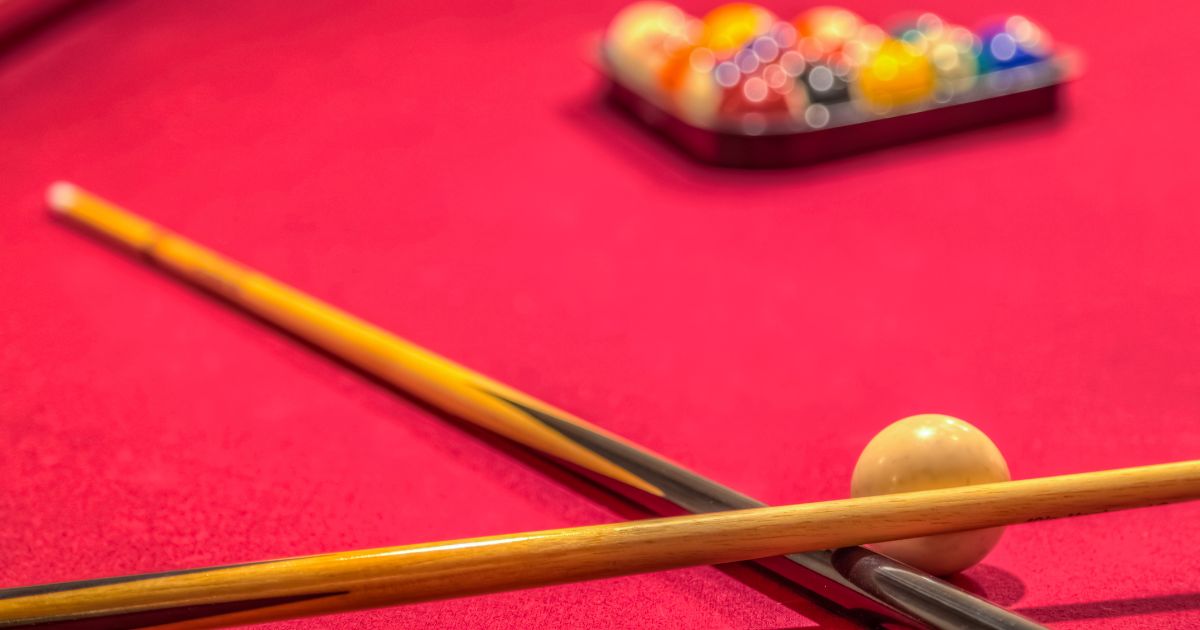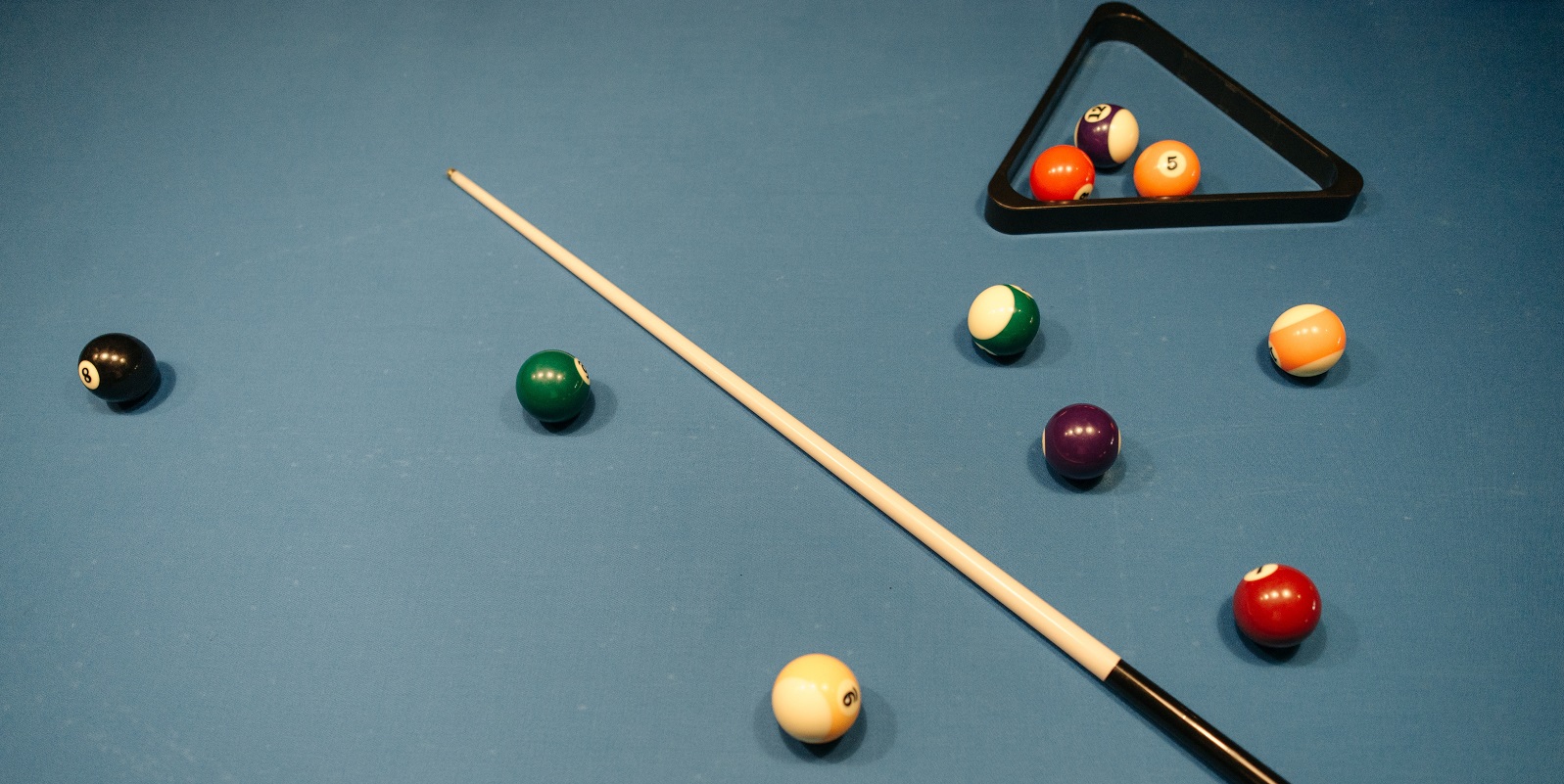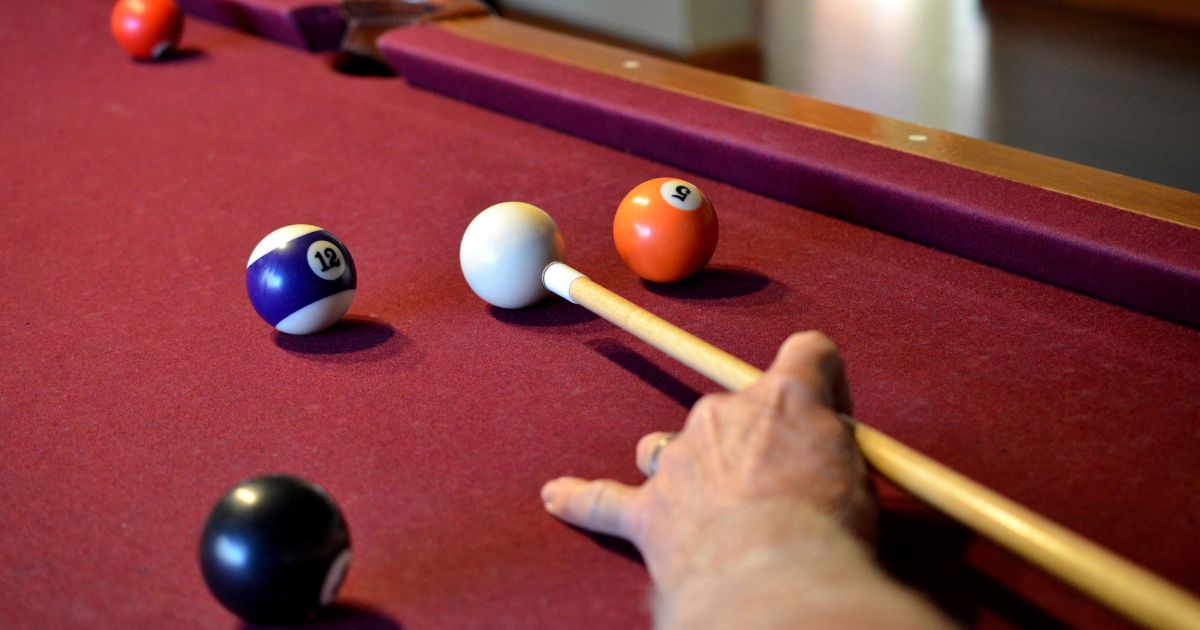What are the Optimal Pool Cue Weights?
Key Takeaways
- Discover how to choose the right pool cue weight that aligns with your playing style and skill level—will you lean towards a heavier or lighter cue?
- Learn about the two main types of pool stick weights and how each can affect your game—do you know which one suits your needs best?
- Explore the ideal pool cue weights for various games, including snooker, American pool, and English pool—what weight could give you the edge?
- Delve into expert tips on adjusting cue weights and enhancing your performance—what adjustments could take your game to the next level?
What Cue Stick Weight Should You Go For?

Choosing the right cue stick weight is largely a matter of personal preference and playing style. For beginners, it’s generally recommended to start with a cue weight between 19 and 20 ounces. This weight range provides a good balance between control and power, making it easier to develop your skills without feeling overwhelmed.
To find the best cue for you, try out various sticks during practice games. Pay attention to how each cue feels during shots—notice how easily you can control the cue ball and execute your desired shots. If you’re unsure where to start, a 19-ounce cue is a solid choice. However, if you’re looking for a cue specifically for breaking, opting for a lighter break cue can enhance cue velocity and improve your breaking power.
If you’re seeking more in-depth guidance on choosing the right pool cue, including tips and factors to consider, be sure to check out additional resources.
2 Main Types Of Pool Stick Weights

When it comes to pool cues, weight plays a significant role in a player’s performance and comfort at the table. Generally, cues can be categorized into two main types based on their weight: heavier and lighter cues.
Understanding the differences between these types can help you choose the right cue that complements your playing style, weights below.
Heavier Pool Cue
Heavier pool cues typically weigh between 19 to 21 ounces. Many players favor these cues for the specific advantages they provide during gameplay.
Pros and Cons of Heavier Pool Cues
Pros | Cons |
Increased Power: The extra weight allows players to generate more force during breaks and long shots. | Less Control: Heavier cues can make it more challenging to execute delicate shots, reducing overall control. |
Stability: A heavier cue tends to provide bet ter stability during the stroke, promoting a consistent shot-making motion. | Fatigue: Over extended play, heavier cues can lead to player fatigue, especially for those not accustomed to them. |
Durability: Generally, heavier cues are more robust and can withstand the rigors of regular play, leading to a longer lifespan. | Limited Finesse: Heavier cues may hinder precise shot-making, particularly in games that require intricate movements, such as snooker. |
In essence, heavier cues are ideal for players who rely on power and strength in their game. However, they may require some adjustment for those who favor finesse.
Lighter Pool Cue

Lighter pool cues generally weigh between 16 to 18 ounces. These cues are popular among players who prioritize precision and control in their shots.
Pros and Cons of Lighter Pool Cues
Pros | Cons |
Enhanced Control: Lighter cues offer improved control and finesse, making them ideal for executing delicate shots and precise angles. | Reduced Power: The lighter weight may limit the amount of force that can be generated, making powerful breaks more challenging. |
Less Fatigue: Players often experience less fatigue during longer sessions since the lighter weight is easier to handle. | Stability Issues: Lighter cues may feel less stable during the stroke, potentially leading to inconsistency in shot-making. |
Adaptability: Many players find lighter cues easier to adjust to for different shot types, enhancing their versatility at the table. | Durability Concerns: Some lighter cues may not be as durable as heavier ones, potentially leading to wear and tear with regular use. |
Lighter cues are excellent for players who focus on skillful shots and strategic play. They allow for quick movements and adaptability but may require more strength to achieve powerful shots.
In summary, the choice between a heavier and lighter pool cue largely depends on individual playing style and preferences. By understanding the pros and cons of each type, players can make an informed decision that enhances their performance at the table, whether they prioritize power or finesse.
What Are the Ideal Pool Cue Weights for Various Pool Games?

Choosing the right pool cue weight is crucial for optimizing your performance in different types of pool games. Each game has its specific requirements that can significantly influence your shot accuracy, control, and overall enjoyment.
Here’s an in-depth look at the ideal cue weights for snooker, American pool, and English pool, along with insights into how these weights impact gameplay.
Snooker
In snooker, the ideal cue weight typically ranges from 16 to 18 ounces. This lighter weight is essential for several reasons:
- Precision and Control: Snooker requires a high level of finesse and precision. The lighter cue allows players to execute delicate shots with greater control, making it easier to navigate tight angles and perform intricate spins.
- Shorter Distances: Snooker cues are designed for shorter shots on a smaller table compared to other pool games. The reduced weight aids in developing a smooth stroke, enabling players to focus on accuracy without overexerting themselves.
- Technique Development: Many professional snooker players advocate for using a lighter cue during practice. This helps players develop a more refined technique, enhancing their touch and feel for the game.
When selecting a cue for snooker, players should also consider factors like the cue’s balance and tip size, as these can further influence shot-making and feel.
American Pool
American pool cues are generally heavier, ranging from 19 to 21 ounces. The choice of weight in the American pool serves specific purposes that cater to the game’s style and mechanics:
- Powerful Breaks: The heavier cue provides the necessary force to execute effective breaks, a critical element in games like 8-ball and 9-ball. A solid break can lead to a favorable spread of balls, increasing a player’s chances of winning the game.
- Distance Shots: With the larger and heavier balls used in the American pool, a heavier cue facilitates longer shots. Players can exert more power and maintain control over the cue ball, especially during crucial shots that can determine the game’s outcome.
- Durability and Stability: A heavier cue can offer enhanced stability during a stroke, allowing players to develop a consistent and repeatable motion. This consistency is vital for high-stakes games where precision is paramount.
Players should also pay attention to the cue’s taper and flexibility, as these factors can affect how the cue performs with the heavier weight.
English Pool
For English pool, the ideal cue weight typically falls between 17 to 19 ounces. This weight range strikes a balance between the lighter snooker cues and the heavier American pool cues, providing unique advantages:
- Versatility: English pool cues need to cater to various shot types, from delicate spins to powerful breaks. The medium weight allows players to adapt their stroke for both finesse and power, making it suitable for the game’s diverse demands.
- Control Over Smaller Balls: Since the English pool uses smaller balls, a cue that’s too heavy can lead to less control. The medium weight helps maintain accuracy while allowing players to perform controlled shots.
- Comfort and Feel: Many players find that a cue in this weight range feels more comfortable and natural during play, which can help improve their overall game. The right weight encourages a fluid stroke, which is crucial for effective shot-making.
Ultimately, choosing the ideal cue weight involves personal preference and individual playing style. Players are encouraged to experiment with different weights to find the one that enhances their performance and feel for the game. Whether you’re playing snooker, American pool, or English pool, the right cue can make a significant difference in your overall experience and success at the table.
FAQs
How to add weight to a pool cue with no weights?
Changing the weight of your pool cue can enhance your playing experience, and it’s relatively straightforward to do if your cue allows for adjustments. Here’s a step-by-step guide on how to add weight to a pool cue that doesn’t have built-in weights:
Tools Needed:
- Screwdriver: Typically a flathead or Phillips, depending on the screws on your cue.
- Weight Bolts or Washers: You can purchase additional weight bolts or washers from a pool supply store or online. Ensure they are compatible with your cue’s specifications.
Step-by-Step Process:
- Remove the Butt Cap: Start by locating the butt cap at the end of your cue. This cap is often secured with screws or may be a snug fit. Use your screwdriver to carefully remove the screws or gently pry off the cap if it’s a slip-on style.
- Locate the Weight Bolts: After removing the butt cap, you should see the weight bolts inside the cue butt. These are usually metal bolts that can be removed or adjusted to change the cue’s weight.
- Remove Existing Weight Bolts (if necessary): If your cue already has weight bolts, unscrew them using the appropriate screwdriver. Take note of how many bolts are currently installed so you can adjust accordingly.
- Add Additional Weight: Depending on how much weight you want to add, insert new weight bolts or washers into the cue butt. Be careful not to over-tighten them, as this can damage the cue.
- Reattach the Butt Cap: Once you’ve added the desired weight, put the butt cap back in place. Secure it with screws or press it back on firmly, depending on the style of your cue.
- Test the Cue Weight: After making the adjustments, it’s a good idea to test the cue by playing a few shots. This will help you determine if the new weight feels comfortable and suits your playing style.
Additional Tips:
- Experiment with Weights: If you need clarification on how much weight to add, start with small increments. You can always add more weight later if needed.
- Consult with Experts: If you need more clarification about the process, consider reaching out to a professional cue technician or the retailer where you purchased your cue for guidance.
By following these steps, you can easily add weight to your pool cue, allowing you to customize it to fit your playing preferences better and enhance your performance at the table.
What scale do you use to weigh pool cues?
To weigh pool cues accurately, it’s best to use a digital scale that can measure in ounces. Digital scales provide precise readings and are easy to use. Here are a few options to consider:
- Kitchen Scale: A digital kitchen scale can work well if it can weigh items in the 16 to 21-ounce range. Ensure it has a flat surface to accommodate the cue without any obstructions.
- Postal Scale: These scales are designed for weighing packages and can typically handle heavier weights, making them suitable for pool cues. They usually provide a clear digital display for easy reading.
- Specific Cue Scales: Some companies manufacture scales specifically designed for weighing pool cues. These scales often feature a cradle or holder to support the cue during weighing, ensuring accuracy.
When weighing your cue, make sure it is clean and dry for the most accurate measurement. Additionally, calibrate the scale before use to ensure precise readings.
What weight pool cue do pros use?
The pros use cues that weigh 19 to 19.5 ounces. Available pool sticks range from a low of about 15 to 27 ounces, an extra half-pound over the pro cue.
Additionally, pro players are more specific regarding weight and consider it based on how it helps them perform their favorite shots. They like more vital cues for breaking shots, for example, and softer cues for skill shots.

Dave Pearson
Dave Pearson, the world's leading pool entertainer, is renowned globally as the ultimate exhibition player.
Boasting 20 world records endorsed by the prestigious Guinness Book of World Records, Dave established a legendary history in the sport industry.

